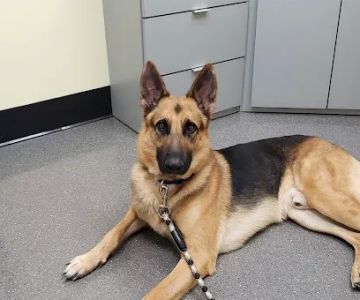What Education is Required to Become a Veterinarian?
- 1. Overview of the Veterinary Profession
- 2. The Academic Path to Becoming a Veterinarian
- 3. Key Skills and Qualities Needed for Veterinarians
- 4. Real-Life Experiences and Insights into Veterinary Education
- 5. Career Opportunities for Veterinarians
1. Overview of the Veterinary Profession
Becoming a veterinarian is a rewarding and challenging career path. It involves a deep commitment to the care and well-being of animals, whether they are household pets, farm animals, or exotic species. But before you can don the white coat and treat animals, you'll need to go through years of education and training. Understanding what education is required for a veterinarian is the first step in this exciting journey.
2. The Academic Path to Becoming a Veterinarian
Becoming a veterinarian requires a combination of formal education, hands-on experience, and, of course, passion for animals. The education process typically begins with a bachelor’s degree in a related field and is followed by a professional veterinary program. Let’s take a closer look at the academic journey:
- Undergraduate Education: The first step is to earn a bachelor’s degree, typically in a science-related field such as biology, chemistry, or animal science. During this time, students need to complete pre-veterinary courses, which can include biology, chemistry, and physics. It’s crucial to maintain a high GPA as veterinary schools are competitive, and many require a strong academic background.
- Veterinary School: After completing the undergraduate degree, the next step is veterinary school. This typically lasts four years and includes both classroom learning and hands-on training. Students will study anatomy, pharmacology, microbiology, and clinical practices. Veterinary school is intense and requires a great deal of dedication, as students must learn to care for a wide variety of animals.
- Licensing: After completing veterinary school, aspiring veterinarians must pass the North American Veterinary Licensing Exam (NAVLE) to practice in the U.S. This exam tests knowledge in a wide range of areas, including anatomy, clinical procedures, and diagnostics. In some states, additional exams may be required.
3. Key Skills and Qualities Needed for Veterinarians
Beyond formal education, veterinarians need a specific set of skills to succeed in their profession. Here are some key skills and qualities needed to become a great veterinarian:
- Compassion: A deep sense of compassion is essential, as veterinarians must provide care to animals who cannot communicate their needs. Whether comforting an injured pet or supporting an owner through a difficult decision, empathy plays a crucial role.
- Attention to Detail: Veterinary medicine requires a keen eye for detail. Diagnosing illnesses, interpreting test results, and administering treatments all require precision and care.
- Communication Skills: A successful veterinarian must be able to communicate effectively with pet owners, staff, and other healthcare professionals. Explaining complex medical conditions in an understandable way is a vital skill.
- Physical Stamina: The job can be physically demanding, especially for veterinarians who perform surgeries or work with large animals. A strong physical constitution and stamina are necessary.
4. Real-Life Experiences and Insights into Veterinary Education
In real life, veterinary education isn’t just about textbooks and lectures—it’s about hands-on experience. As someone who has gone through this process, I can tell you that working with animals is an integral part of the learning experience. Veterinary schools often have teaching hospitals where students can observe and assist with real medical cases. Many students also participate in internships and externships, where they gain experience in different animal care settings, from private practices to animal shelters or even wildlife rehabilitation centers.
For example, during my clinical rotations, I worked with a variety of animals, from small house pets to large farm animals. This hands-on experience allowed me to apply what I learned in class to real-world situations, helping me grow as both a student and a future veterinarian.
5. Career Opportunities for Veterinarians
After completing their education and becoming licensed, veterinarians have numerous career options available to them. While many choose to work in private practice, there are other career paths to explore, including:
- Private Practice: The majority of veterinarians work in private practice, treating pets and animals for routine check-ups, surgeries, and emergencies.
- Animal Hospitals: Some veterinarians work in animal hospitals, where they may treat more complex medical cases or specialize in particular areas such as surgery or emergency care.
- Wildlife Conservation: Veterinarians with a passion for wildlife can work in wildlife conservation, caring for endangered species and ensuring their survival.
- Research: Veterinarians can also work in research, studying animal health and diseases to improve treatment methods and overall care.
- Education: Teaching veterinary medicine at a college or university is another option for those who want to pass on their knowledge to the next generation of veterinarians.
If you're passionate about animals and dedicated to providing high-quality care, becoming a veterinarian can be an incredibly fulfilling career. It takes years of education, hands-on training, and a genuine love for animals. The path to becoming a veterinarian is challenging, but for those who are committed to the journey, it’s a rewarding and impactful profession.











